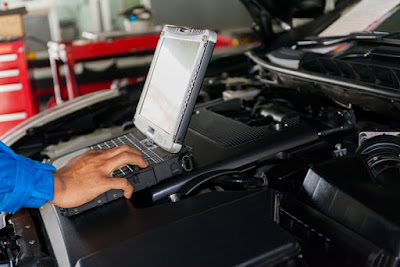Changing the oil in your car is generally a quick and relatively inexpensive service. Some drivers underestimate what timely oil changes can do for their car. Good, clean oil increases the performance level and extends the life of the engine. However, over time, the fluid breaks down and becomes ineffective in doing its job. So why do so many people procrastinate when it comes to oil changes?
How do you know if you need your oil changed? A lot of drivers rely solely on mileage, but there are other factors to consider as well, such as the quality of the oil, the age of the car and how the car is driven.
Here are 6 common signs that it’s time for an oil change:
- Oil Change Light -- The oil change light in your car will illuminate when there’s not enough oil in the system so check the dipstick. The check engine light will illuminate for extreme issues, warning that the engine is at risk of damage.
- Engine Noise and Knocking -- Oil provides a protective layer between engine parts, avoiding metal-to-metal contact and keeping the engine quiet. If the oil has lost its effectiveness, you may hear knocking sounds indicating that the engine is not being lubricated correctly.
- Dark, Dirty Oil -- Clean oil is amber in color and slightly translucent. Over time, it becomes filled with particles collected from the engine and turns darker. It’s not obvious when this begins to happen, so check the oil at least once a month. If you cannot see the dipstick through the oil, it is time for an oil change.
- Oil Smell Inside the Car -- If you smell oil inside the car, it can often signify an oil leak. If you also smell gas or exhaust fumes, the engine may be overheating.
- Exhaust Smoke -- Some translucent vapor will always come out of the muffler, but if this changes to smoke, it’s time for an engine check-up. you may have faulty engine parts or an oil leak.
- Excessive Mileage -- If you travel a lot of miles on a regular basis you may want oil change sooner than the normal schedule. Check your owner’s manual for specific guidelines.
Fresh, clean oil optimizes your vehicle’s performance by lubricating parts and keeping the engine clean and healthy as well as preventing excessive wear and tear on your engine, resulting in fewer repairs down the road.
Are you wondering how do you know if you need your oil changed? Call our ASE Certified Technicians at Clausen Automotive, The Hybrid Shop, for more information about how to find their oil change coupons and to make an appointment. Since 1975, our family-owned auto shop has proudly served car owners in Madison, WI, and the surrounding communities.

















